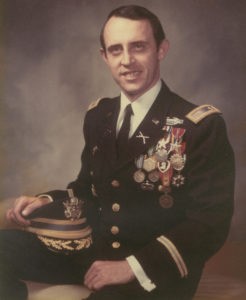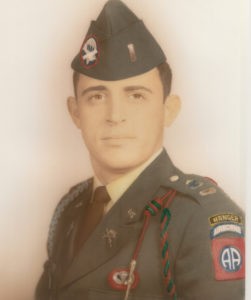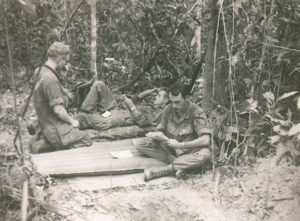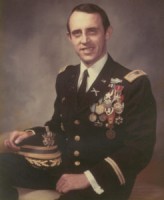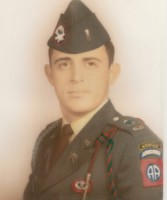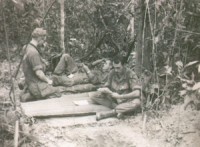Henry "Rocky" Colavita
Vietnam War
Henry “Rocky” ColavitaUS Army in Vietnam
Rocky was born in Newark, New Jersey in 1941. Inspired by a long family history of military service, Rocky decided at a young age that he wanted to make a career out of the Army. After completing his college education, he entered Officer Candidate School, earning his commission in January 1963.
His first unit was the 82nd Airborne. Immediately after promoting to 1st Lieutenant, Rocky volunteered and was accepted to deploy to Vietnam as part of an advisor team. After completing a few months of mandatory pre-deployment training, Rocky arrived in-country by the summer of 1965. During this deployment, he embedded with a South Vietnamese airborne unit with the purpose of advising them on improved field tactics and practices. He further explains that while advice wasn't always welcomed or utilized, the South Vietnamese valued their presence because of the air and artillery support they provided.
Rocky recollects that the armed confrontations he experienced with the North Vietnamese Army and Vietcong were relatively small-scale and short-lived when compared with later battles. The most substantial clash occurred six months into his tour, where he was wounded and evacuated back to the United States for recovery. He was forced onto a limited duty status for 6-12 months and placed into an administration position at the Army War College. Shortly after arriving at this post, he was promoted to Captain and selected to be the Commandant’s Aide, where he established contacts with many high-ranking officers.
Cleared for overseas duty, Rocky attended the Advanced Infantry Course in 1967 and by 1968, transferred to the 1st Cavalry’s Air Mobile Division in time to deploy for his second tour in Vietnam. During his tour, he filled the positions of Company Logistics Officer followed by Company Commander. Rocky describes in depth his unit’s innate ability to destroy the enemy by setting up large-scale ambushes. He was so successful with this tactic that he provided seminars to his peers and newly arrived officers.
Rocky states that he did not experience any of the negativity other soldiers did during his return home. Rocky continued with his service until he retired in 1983. After much hesitation, Rocky became a regular with reunions. It was at these events he began to hear the first-hand stories of abuse received by his soldiers and peers. Rocky’s decorations include three Bronze Stars and the Purple Heart.
Bio prepared by Shannon P. Reck, MMH
Back to Stories









